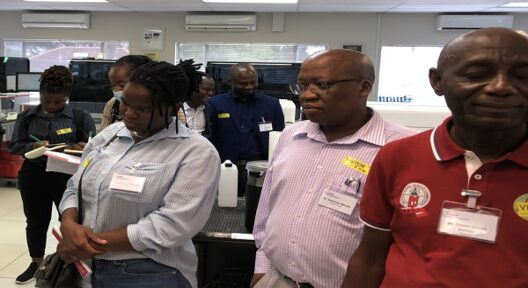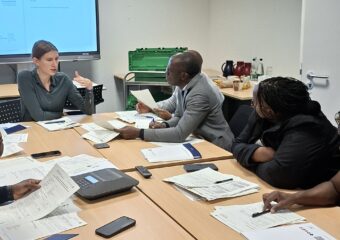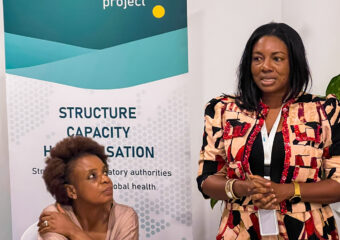Learning to Inspect Blood Manufacturing Facilities – BloodTrain and EuBIS Academy Conducted the Practical part of their Inspection Training with 16 countries in Africa
BloodTrain and the European Blood Inspection System (EuBIS), together with the African Society for Blood Transfusion (AfSBT), hosted the second part of the inspection workshop in South Africa. The three-day workshop was attended by 33 participants from 16 African countries. The focus was on knowledge transfer and exchange of experience in the practical aspects of inspection. As a highlight, the South African blood establishment, ‘Western Cape Blood Service’ provided insights into its operations during a visit to the facility.

Inspections contribute to blood safety and effectiveness
Blood establishments do not only collect blood from donors, they often also have the license to further process the blood into the components needed for therapy. For this processes and manufacturing, blood establishments must comply with requirements – for example, for donor selection or storage conditions of the blood components. Regular inspections of the manufacturing facilities verify compliance with the regulations and thus contribute to the quality, safety and efficacy of blood and blood products. This demands competent inspectors in the national regulatory authorities and trained quality officers in the blood establishments. This training workshop was therefore aimed at both target groups. It provided practical knowledge around inspection and completes the previous training seminar that BloodTrain and EuBIS had organized in September 2021 in an online format (see article).
With the training, the BloodTrain intended to capacitate the regulatory authorities to effectively conduct regulatory inspections of blood establishments within their jurisdiction. Furthermore, to strengthen the blood establishments in their competence to conduct adequate self-inspections of their operations and to prepare themselves accordingly for regulatory inspections.

Real-life case studies and international exchange of the best practices
The training included lectures and a lot of group work, where the participants worked on different tasks based on case studies. In plenary discussions, results of the group work were presented and discussed. The vastly experienced EuBIS Academy trainers guided the discussions, providing expert opinions and detailed elaborations. As part of the training, all participants had the opportunity to visit the Western Cape Blood Service headquarters and learn about its processes. This included processes such as donor screening, whole blood collection as well as apheresis collection of plasma and platelets to testing, component preparation, storage and distribution.
In addition to the technical training, the workshop presented a networking platform and participants shared experiences as well as challenges pertaining to blood safety and regulation in the different parts of Africa. Further, the participants had the opportunity to learn from EuBIS and PEI BloodTrain facilitators who shared best practices from Europe and other parts of the world with advanced blood regulatory systems.
More information
For more information about the project, please contact us by e-mail at bloodtrain@pei.de.
Date: December 2022



